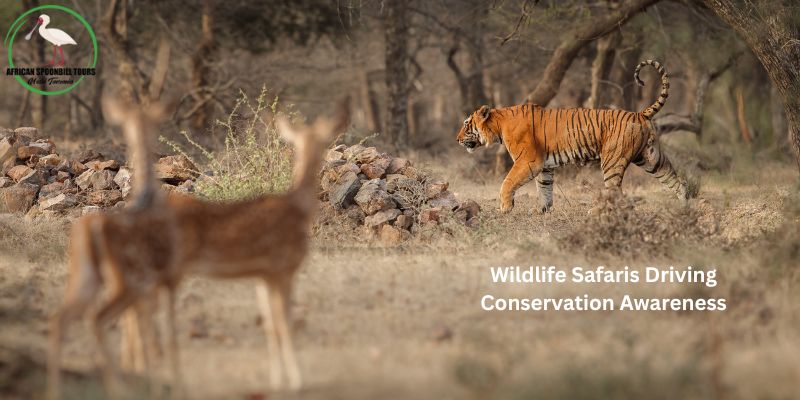
Have you ever wondered how an african wildlife safari can do more than just offer breathtaking experiences? Beyond the thrill of spotting lions and elephants, safaris are increasingly playing a pivotal role in promoting conservation awareness, protecting ecosystems, and educating travelers about the fragile balance of Africa’s wilderness.
The Role of African Safaris in Conservation
African wildlife safaris are not merely tourism ventures; they are powerful tools for conservation. By integrating eco-conscious practices and collaborating with local communities, safari operators contribute to preserving habitats, funding anti-poaching initiatives, and promoting biodiversity.
- Financial Support: Revenue from safari tours often funds national parks, wildlife reserves, and conservation projects.
- Community Engagement: Safaris create jobs for locals, incentivizing communities to protect wildlife rather than exploit it.
- Education & Awareness: Tourists gain firsthand knowledge of endangered species, ecosystems, and the impact of human activity.
How Luxury Safari Africa Balances Adventure and Conservation?
Modern luxury safari africa experiences have shifted from mere thrill-seeking to sustainable, responsible tourism. Luxury lodges now operate with eco-friendly practices such as solar energy, waste management, and water conservation. Additionally, guided tours often educate visitors on tracking animal populations, understanding migratory patterns, and appreciating the ecological significance of each species.
Wildlife Tracking and Research
Many safari companies collaborate with research organizations to monitor animal populations. Visitors can participate in citizen science initiatives like photo identification of animals or tracking GPS-collared species. Such engagement helps gather critical data for conservation while making tourists active contributors to wildlife preservation.
Promoting Awareness Through Storytelling
Guides share compelling stories about endangered species, poaching threats, and habitat loss. Travelers leave with not just memories, but a deeper understanding of conservation challenges, inspiring responsible choices and advocacy long after returning home.
Real-World Impact: Protecting Iconic Species
From the Serengeti’s vast plains to the Okavango Delta’s wetlands, safaris have tangibly contributed to protecting iconic species. Projects funded through safari tourism have supported anti-poaching units, established safe corridors for elephants, and helped maintain predator-prey balance in national parks. For instance, learning about migratory patterns in Serengeti National Park adds context to survival challenges – see 9 Amazing Facts You Should Know about Serengeti National Park for fascinating insights.
Benefits Beyond Wildlife
Safaris also empower local communities and economies. Tourism creates alternative livelihoods, reducing reliance on unsustainable activities like poaching or logging. Moreover, sustainable lodges often invest in healthcare, education, and infrastructure, linking conservation to social development.
- Local Economy Boost: Jobs in guiding, hospitality, and logistics support communities.
- Cultural Preservation: Tourists gain insights into local traditions, fostering pride and continuity.
- Long-Term Sustainability: Conservation-driven tourism encourages ongoing protection of habitats.
Best Practices for Tourists
- Choose certified eco-friendly safari operators.
- Follow all wildlife guidelines to avoid disturbing animals.
- Support community-run lodges and initiatives.
- Share knowledge gained to promote conservation awareness globally.
FAQs
1. How does an African safari contribute to wildlife conservation?
Revenue from safaris funds national parks, anti-poaching efforts, and community projects, directly supporting conservation initiatives.
2. Can tourists actively participate in conservation during safaris?
Yes, many tours offer citizen science programs, wildlife tracking, and educational activities that let visitors contribute to research and monitoring.
3. Are luxury safaris sustainable?
Modern luxury safari operators increasingly adopt eco-friendly practices, including renewable energy, waste management, and minimal-impact lodges.
4. How do safaris benefit local communities?
Safaris provide employment, promote cultural preservation, and create alternative livelihoods, reducing reliance on harmful environmental practices.
Final Thoughts
African wildlife safaris are more than adventure trips—they are a bridge connecting travelers with nature, education, and conservation. By choosing responsible tours and supporting eco-friendly operators, tourists play a vital role in protecting Africa’s diverse ecosystems. In the end, every safari becomes a step toward a more sustainable and wildlife-conscious world.
Full Audio Version:- Click Here




